Farmers’ Markets are made possible through the efforts of a diverse community of people who come together around an appreciation for wholesome food, locally grown and delivered with the well-being of customers in mind.
Joanna Normoyle of Guru Ram Das Orchards represents one of our farmers who embraces these values and offers a diverse perspective as a queer farmer. Recently, farmers’ market manager MC reached out to Joanna to find out more about their farm, their experience being a queer farmer, and the importance of making markets a safe space for marginalized identities.
What do you love about being a farmer?
I’m deeply motivated by beauty, and that extends into creating opportunities for all kinds of people to delight in the beauty that comes from the trees in our orchard and then finds its way into kitchens all over the Bay Area. I love sharing everyone’s experience with the fruit—their enthusiasm for anything we offer them, from freshly squeezed orange juice to the perfect summer peach. I also love the sensory experience of farming itself: the smell of the citrus leaves when I’m mowing, the light on the trees at the end of the day, the physical act of moving irrigation over hillsides—the embodied experience. And, I like that I rarely have to play small. I get to work as hard as I want, push as much as I can, and share a product that really reflects what I put into it.
What inspired you to work in agriculture?
I’ve loved food for as long as I can remember, and for many years I imagined growing up to become a chef. But later, I realized that I love the complexity of agriculture—I love that it’s physically and intellectually demanding, and very grounding at the same time. After college, I moved to France for awhile and realized how at home I felt in a culture that celebrated provenance, terroir, and the relationships between producers, place, and the food itself. I developed a deep curiosity around farming, reading everything I could get my hands on. Then I moved back to the states and studied at UC Davis, where I found that growing up in the Central Valley with agriculture all around me, as well as in my family for generations, I knew a lot about how to be a farmer through osmosis. Then I needed to find the courage to actually step off a more conventional path and find a way to farm that would work for me.
What are some challenges of being a farmer? Are there added challenges of being a young, queer farmer?
I can’t believe how rough my hands are now. Sometimes it’s a source of pride, and other times it’s truly painful. I’ve never been great at getting enough sleep, but now I’m pretty terrible at it. This can be true for any small business owner, but sometimes prioritization is really challenging. Honestly, the hardest thing about farming is working within a patriarchal system. It’s a rare day when I’m not having to deal with structures that have been designed by and for people who are very different from me. Under these circumstances, my queerness is a tremendous strength. Being at odds with the context I’m in, is not new to me, and my life experiences have taught me to thrive in marginal spaces. My work moves with me and my trajectory, even if it’s operating against the momentum of my environment.
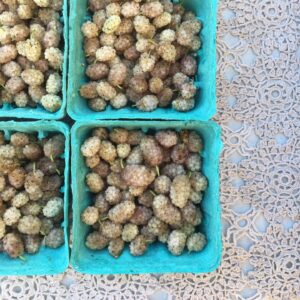
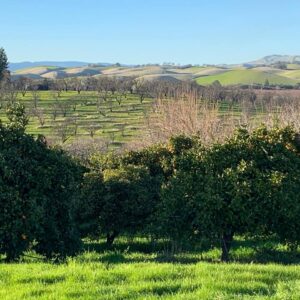 What does the intersection of being a farmer and being queer mean to you?
What does the intersection of being a farmer and being queer mean to you?
For me, being queer has forced me to engage in a level of introspection and deep observation of my own nature. It’s very hard to find a narrative that tells me how to become the person I want to be. As a non-binary person, I can’t just look to society for that roadmap. It makes me curious about myself and curious about the world. Part of my queerness is being a divergent thinker, which is a real asset in farming because it helps me bring disparate elements together to solve problems.
Is it important to you as a farmer to be visible as queer?
It’s so easy to believe that you can’t. Especially if you don’t see anybody like you who already is. My visibility makes the idea of being a queer farmer feel possible for other people. Does it matter to me that people see me as queer for my own reasons? No. But, “representation matters.”
What is your experience living in a rural area? Does your queerness shape this experience?
For the most part, my queerness is invisible to the people around me; so it’s rare that I’m affected by other people’s perceptions. But I am affected by not seeing queerness reflected back at me, and by not having a real community to see me and appreciate my fluidity. But being at farmers’ markets, I have regular opportunities to connect with people who recognize and appreciate that expression. Also, very importantly, I think technology is facilitating a rural revitalization in places like the Capay Valley. Rural reality is not monolithic, and we need to be telling everyone’s stories.
You mentioned wanting to create a safe space at your stand for lgbtq+ people and other marginalized folks. Why is this important to you and how do you wish to create that?
The same environments afford very different experiences to people with different levels of power and privilege. For example, many of us who work in farmers’ markets speak Spanish on the farm every day, which means we’re practiced in the language and have the tools to make Spanish speakers feel comfortable speaking with us in our market stalls. Equal access in safe spaces—where people can have good experiences and take care of basic needs—is something I hope I can provide for everyone, regardless of their politics, geography, or identity. In fact, I’m curious to learn about what matters to the people who come and share our space and our company over the mutual love of our fruit.
Why is selling at farmers’ markets important to your farm? What do you like specifically about Berkeley Farmers’ Markets?
One of the things I value most about farming is the opportunity to offer beauty to people, in the form of amazing fruit. Selling at farmers’ markets is so enjoyable, because we get to hear directly from the people who enjoy what we do. We also get feedback that helps direct the positive evolution of our farm and shape our general community—it’s really about building community. It’s a privilege to connect every week with the people who have supported this farm over the last 25 years in the Berkeley markets. Hearing their experiences, getting to know them as individuals, I really consider many of our long-term customers to be mentors to me as I grow with the farm. It’s an honor to keep something alive that is clearly so important to so many people.
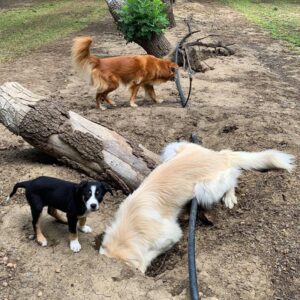 What do you like to do outside of farming?
What do you like to do outside of farming?
Dogs, gardening, cooking. If you follow the farm on Instagram, it’s pretty clear that my dogs are awesome—and super entertaining. They take a lot of my time and energy, in the best way—they are very deserving of it. We spend a lot of time walking in the orchards, working on projects at home, and making delicious meals with produce from the exceptional farms in our markets. My family is important to me, as is political activism, frolicking in the woods, eating pupusas… You know, all the usual things.
Any additional insights you could offer?
Being an ecological farmer, I can’t help but see the connection between diversity and resilience. The key is that all of those parts and players need to interact. The more we can be uniquely ourselves and find the roles we’re meant to play, the better off everyone is. That’s true on the farm, in our communities, and in the world at large. That probably sounds pretty cheesy, but I really believe it. 
————
Joanna Normoyle recently took over Guru Ram Das Orchards from Didar Singh and Didar Kaur Khalsa, who farmed the 12 acre orchard for nearly 40 years. Taking over another person’s life work is a unique challenge, but one that Joanna and Didar have undertaken together over the last year. Didar’s deep knowledge and wisdom combined with Joanna’s innovation and passion carry them forward into the 21st century of organic, ecologically-managed fruit farming. Over the last year, Joanna also had the help of Abbie Davies, who will become a partner in the farm this fall.
You can read more about Guru Ram Das Orchards on our website

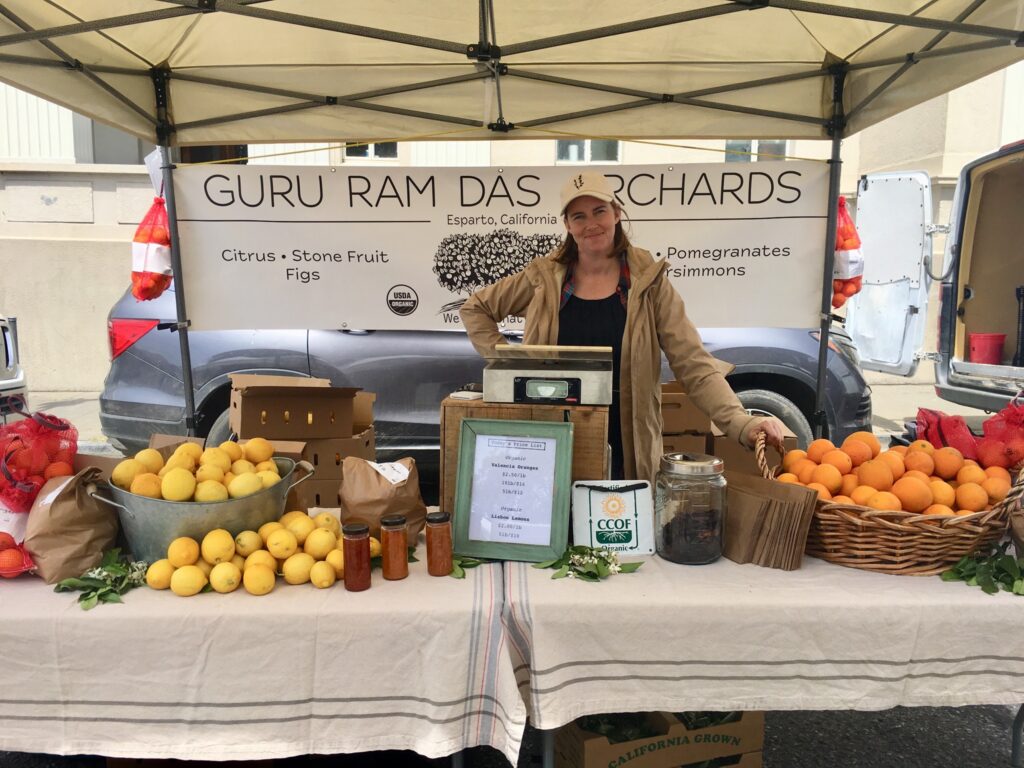
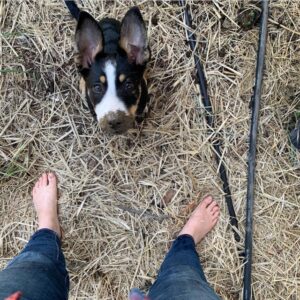
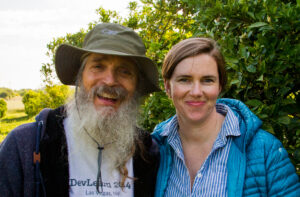



So beautiful, thank you for sharing! ??